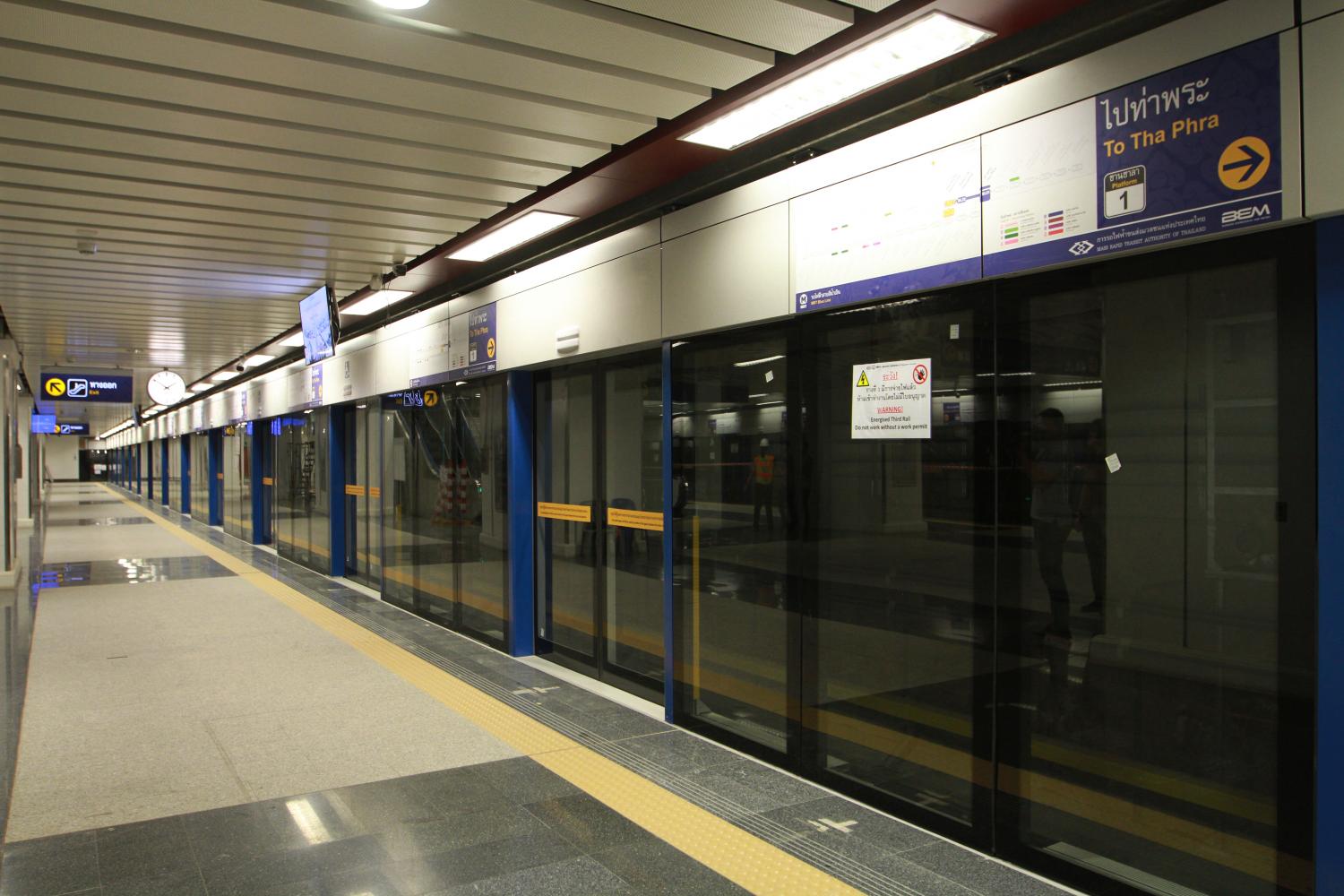
Nine years after construction began, dates have finally been set for test runs on the two extensions of the MRT Blue Line. Once they are up and running, the Blue Line will be a key part of the first circular mass-transit line in Bangkok, making the capital a more connected city and opening new opportunities for development.
The existing Blue Line is the second most popular mass-transit line in Bangkok with 19 trains carrying 350,000 passengers each weekday. CBRE believes its passenger total will continue to increase as the line is extended and more trains are introduced.
Last year, Bangkok Expressway and Metro Plc (BEM) signed a contract to buy 35 more trains to be gradually added to the system, bringing its total to 54. Four trains will be added at the end of this year when the first extension from Hua Lamphong to Lak Song is opened, increasing the capacity to more than 400,000 passengers per weekday.
Once the second extension from Tao Poon to Tha Phra is operational in 2020, eight more trains are scheduled to be added, increasing the capacity to 600,000 passengers per weekday.
Within the next five years, five under-construction lines, connecting midtown and suburban areas of Bangkok to the MRT Blue Line, will be completed. They are the BTS Light Green Line (Mo Chit to Khu Khot), Yellow Line (Lat Phrao to Samrong), Light Red Line (Taling Chan to Bang Sue), Dark Red Line (Bang Sue to Rangsit), and the Orange line (Thailand Cultural Centre to Min Buri). The first four are expected to be completed in 2021 and the Orange Line in 2024.
These five lines will feed even more passengers to the MRT Blue Line while creating new nodes at interchange stations -- Bang Sue, Lat Phrao and Thailand Cultural Centre -- where some developers are already planning to develop large-scale projects.
When all five future lines are operational and the planned large-scale developments are completed, the Blue Line will need all 35 of its new trains to meet increasing passenger traffic. With 54 trains, it will be able to handle nearly 1 million passengers per weekday.
Demand from these 1 million passengers will drive the emergence of new central business districts and key areas, especially at interchange stations, which will create valuable opportunities for property developments in the near future.
CBRE believes that the expansion of the mass-transit network will change how Bangkok residents live, work and play. Bangkok will become a more defined city with each corner of the city connected to another by at least one mass-transit line.
Pakapon Utaobin is an analyst in research and consulting, CBRE Thailand. She can be reached at bangkok@cbre.co.th
